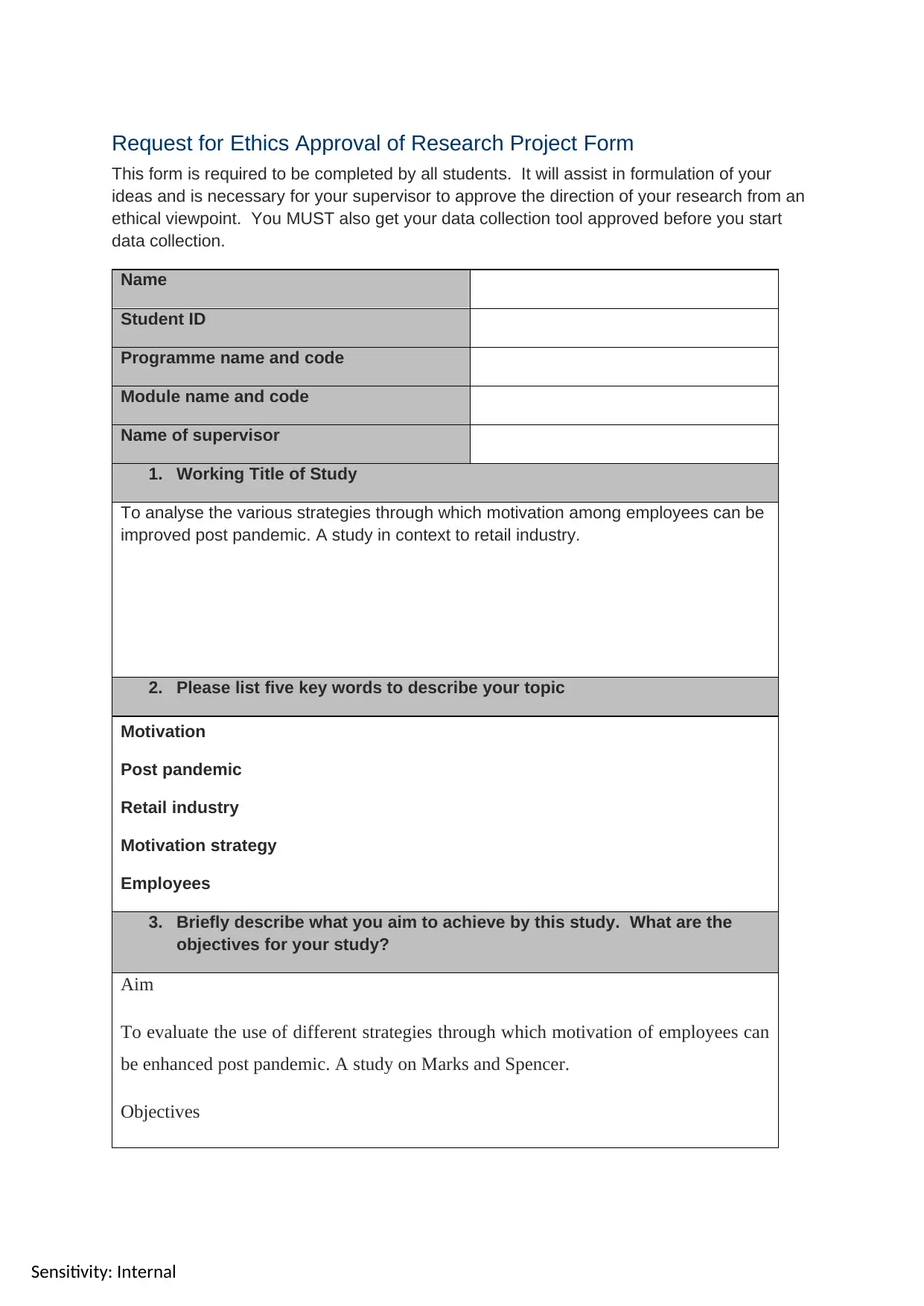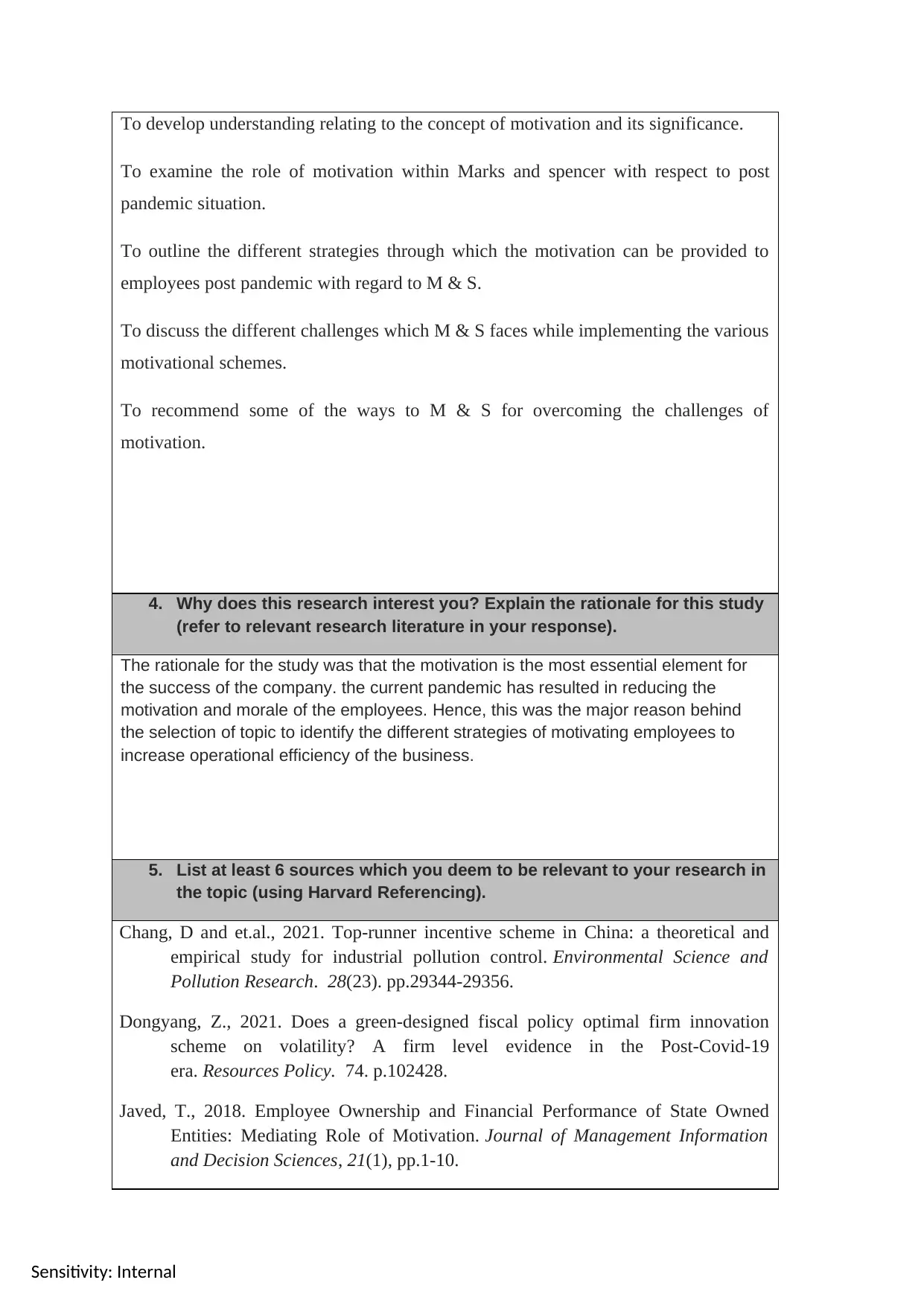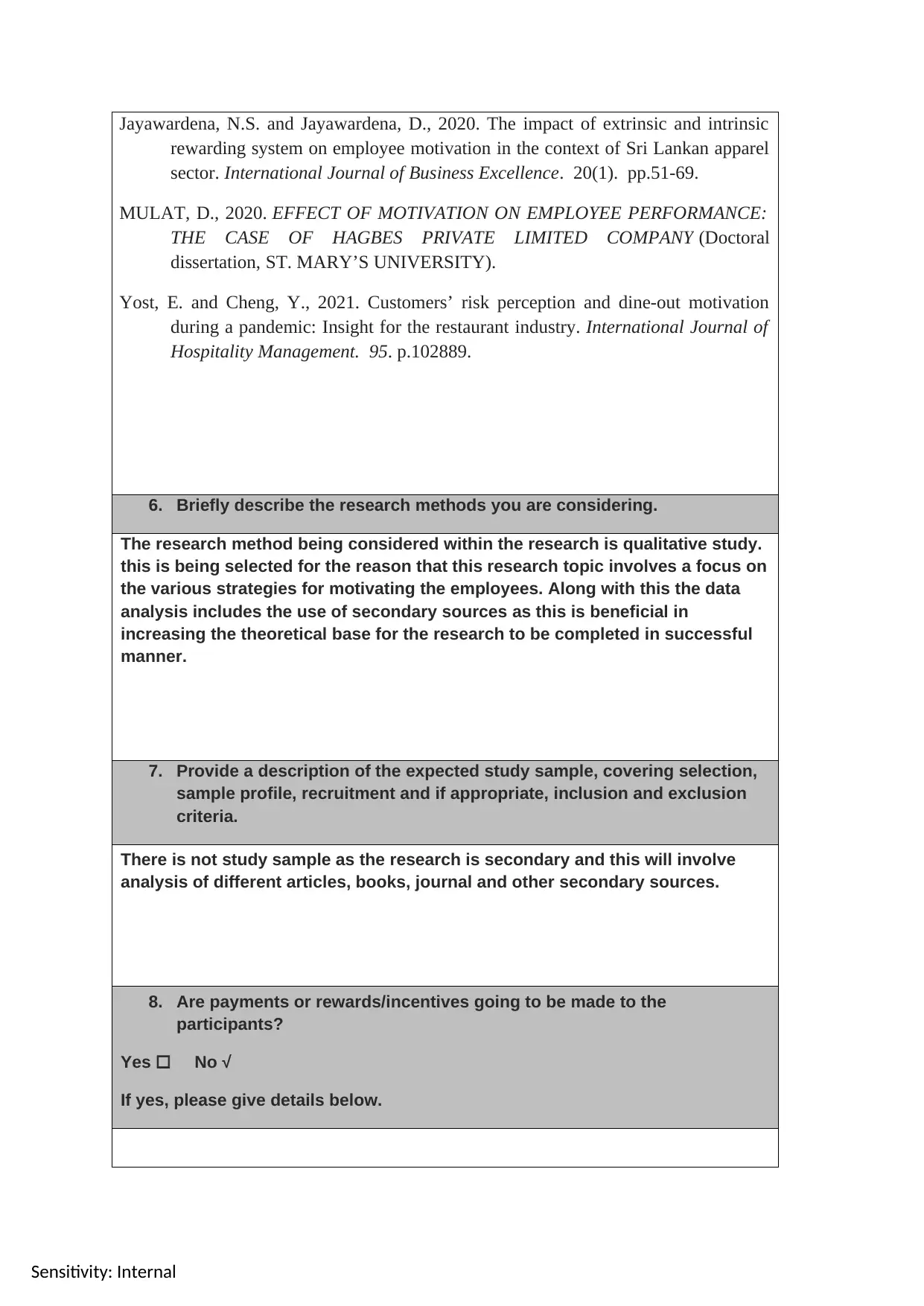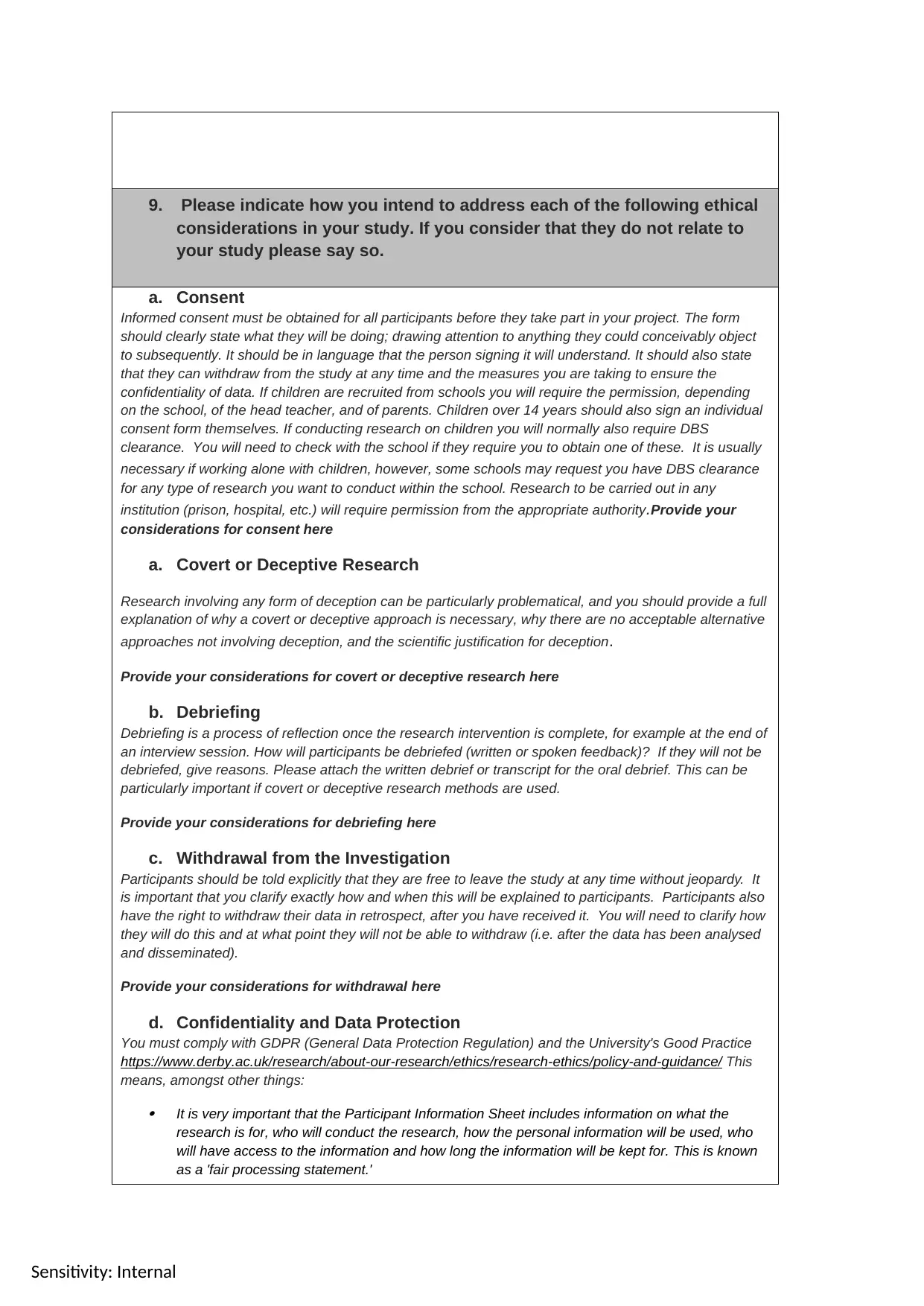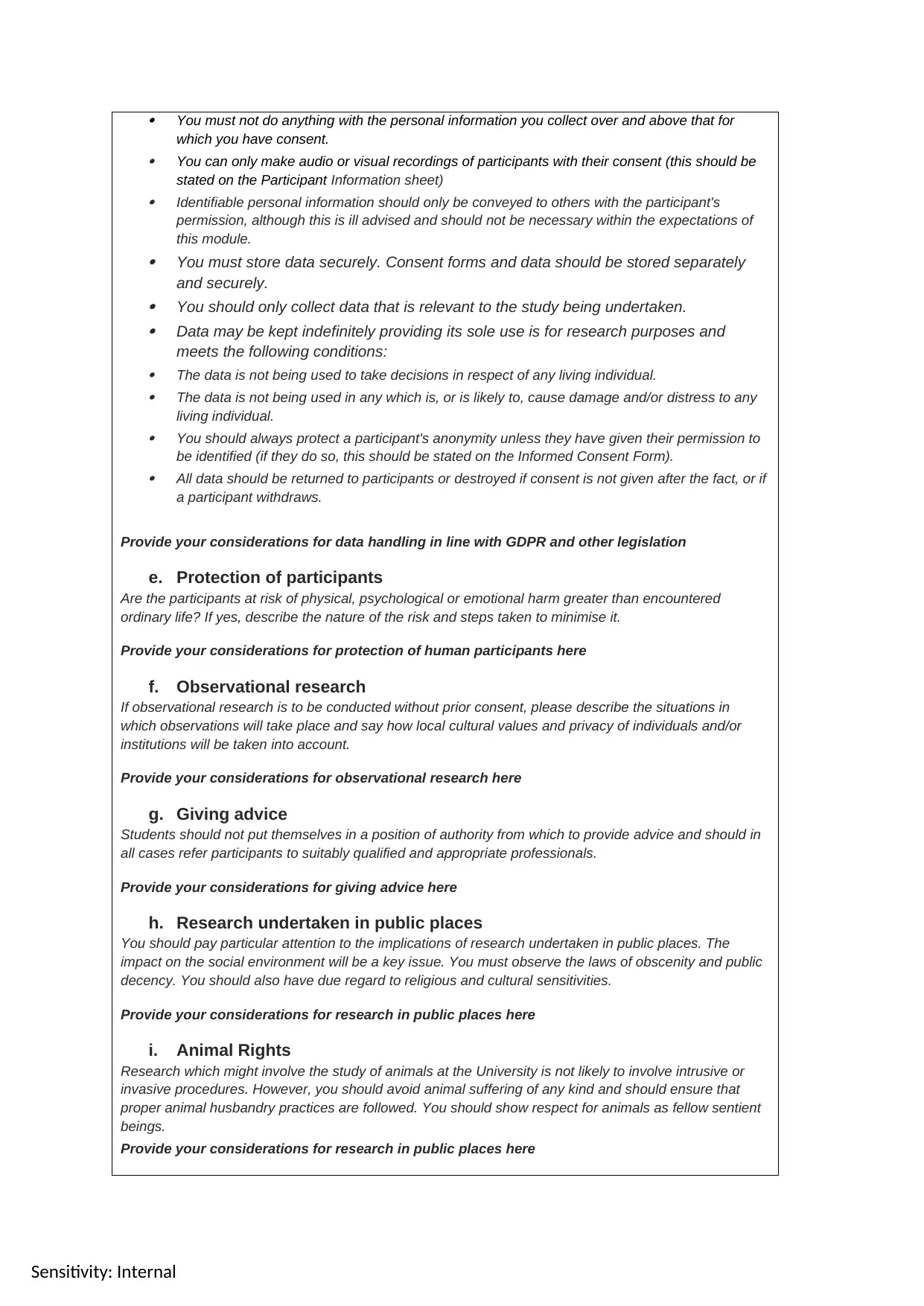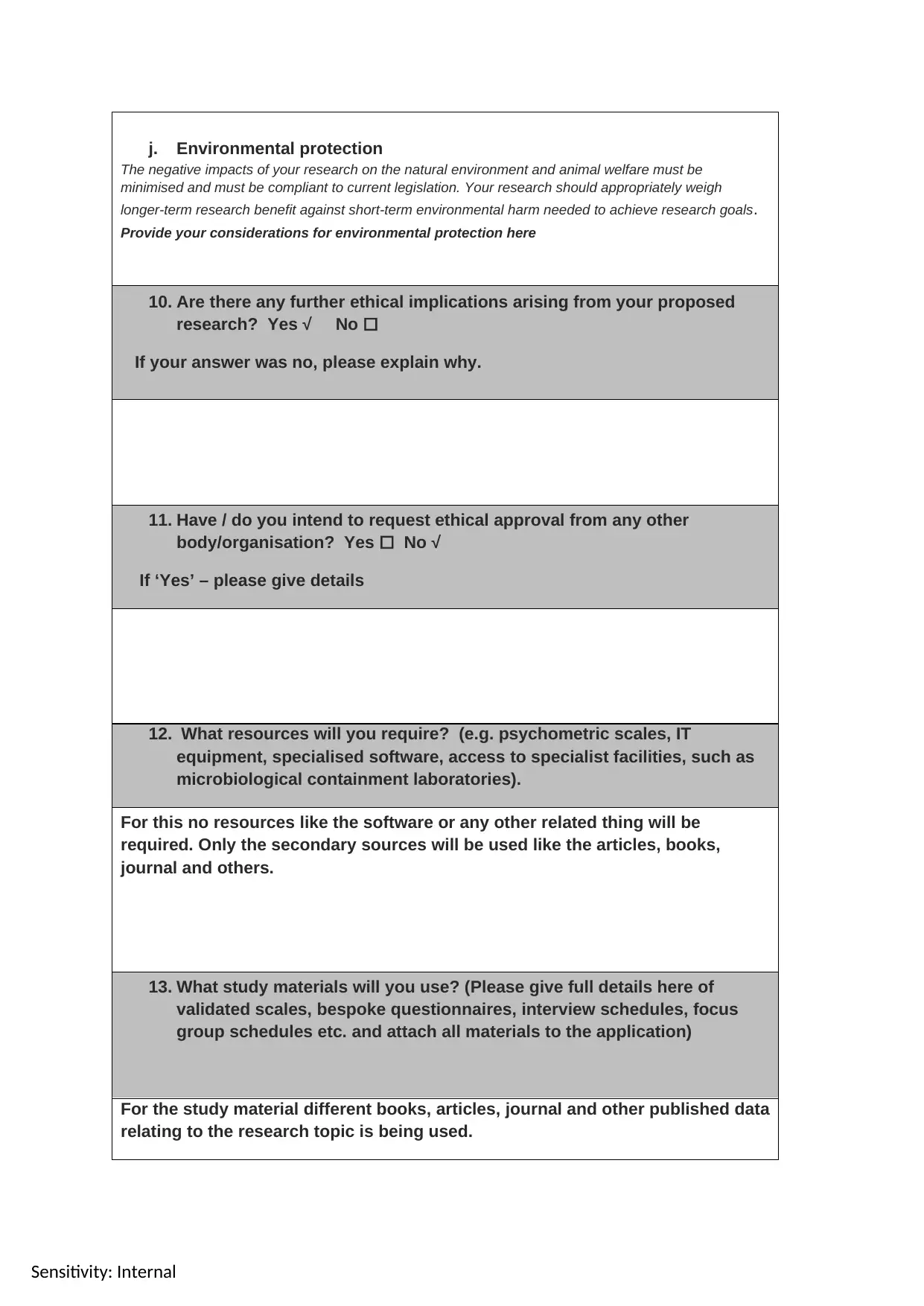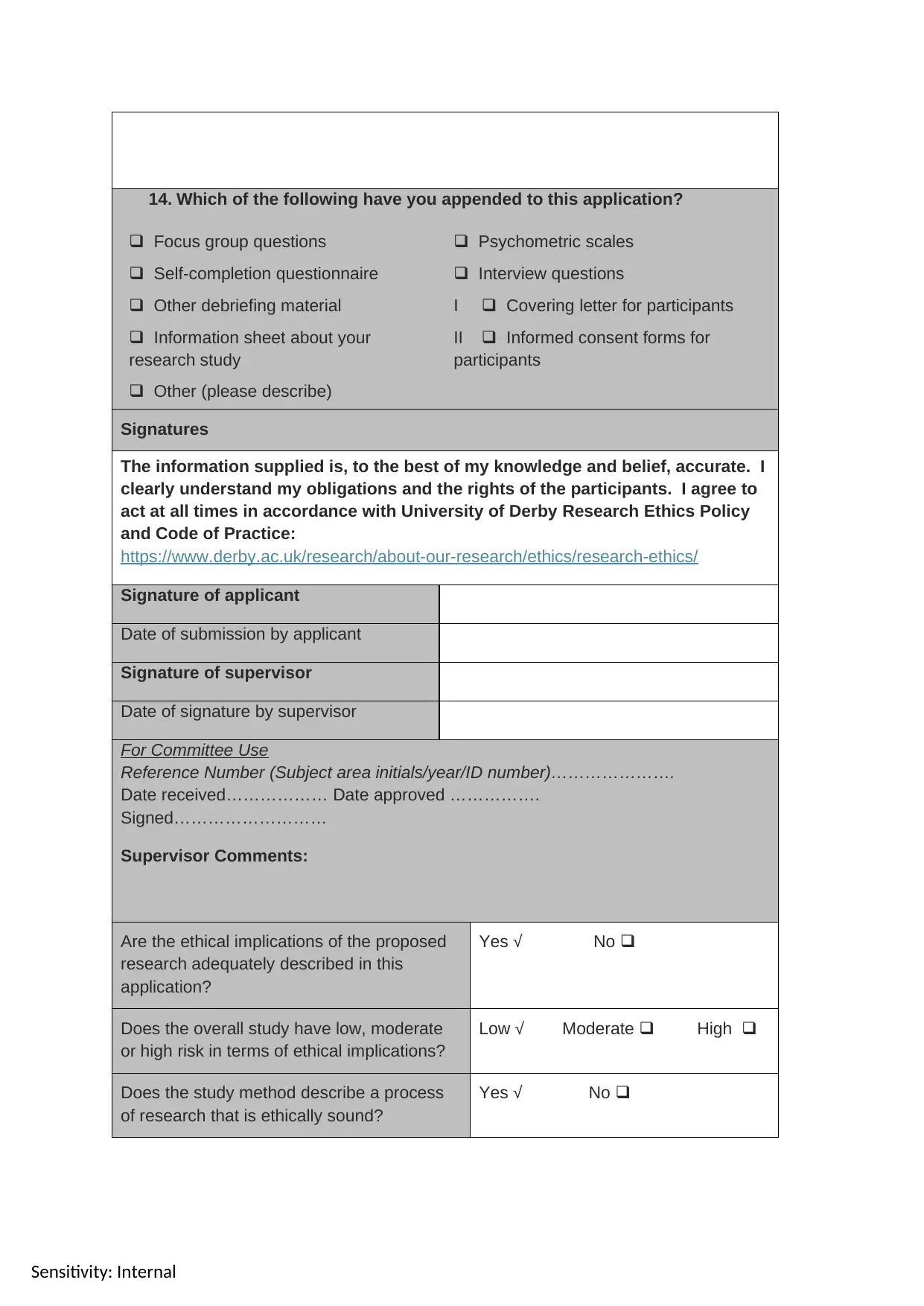This is a request for ethics approval of a research project on the topic of analyzing strategies to improve employee motivation post-pandemic in the context of the retail industry, specifically focusing on Marks and Spencer. The research method being considered is qualitative study, and the data analysis includes the use of secondary sources. The study sample is secondary and will involve analysis of different articles, books, journals, and other secondary sources. No payments or rewards/incentives will be made to the participants. The ethical considerations of consent, confidentiality and data protection, and protection of participants are addressed. No further ethical implications are identified. No resources or study materials beyond secondary sources are required.
![[object Object]](/_next/static/media/star-bottom.7253800d.svg)
![[object Object]](/_next/static/media/star-bottom.7253800d.svg)
